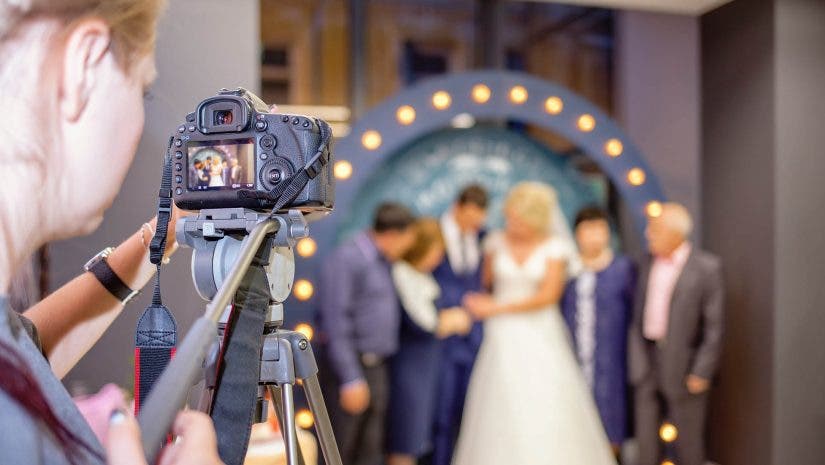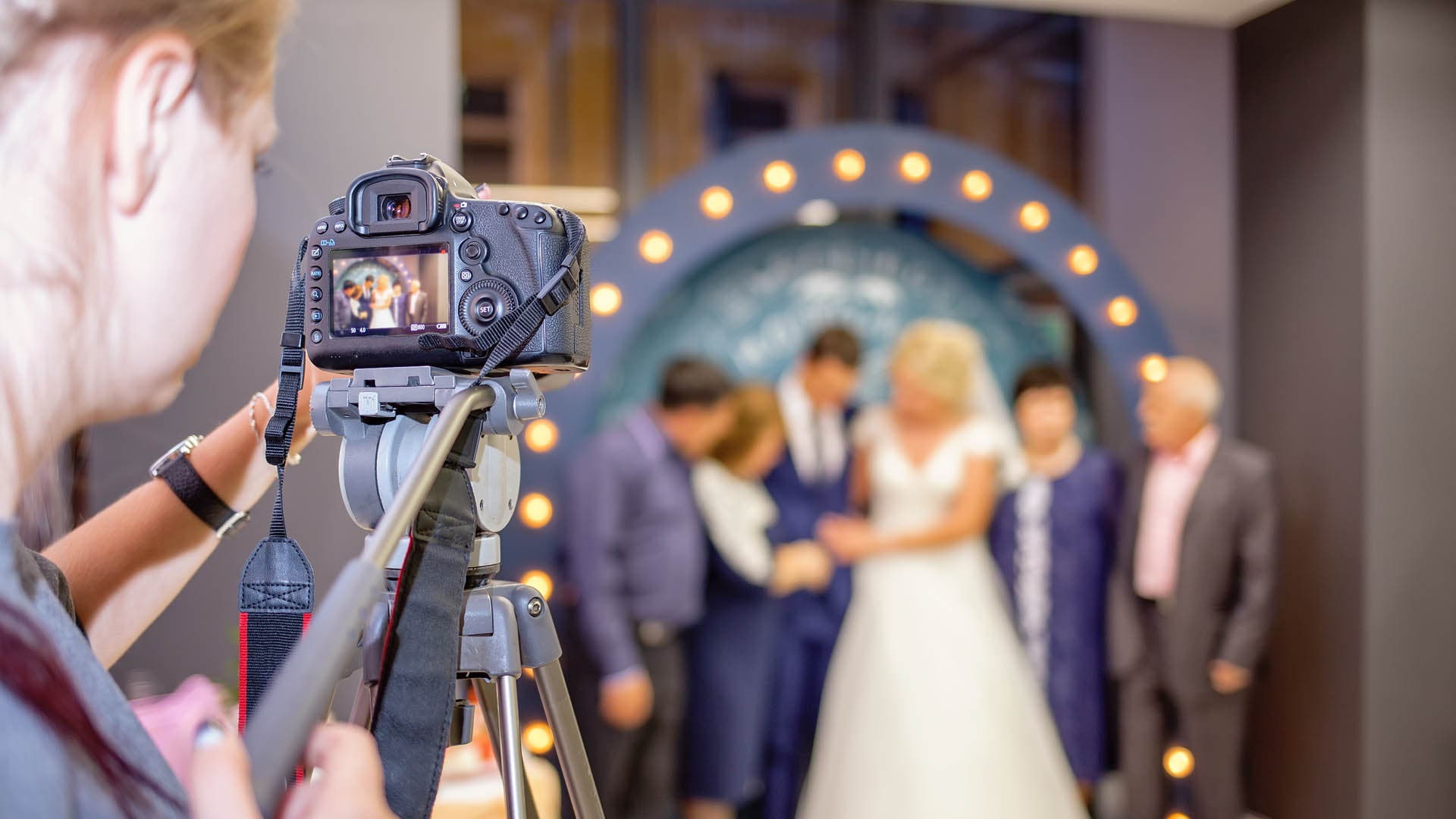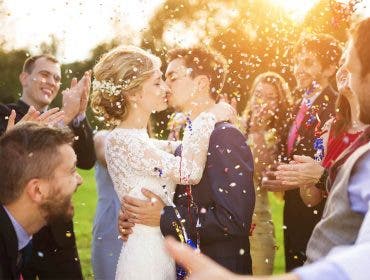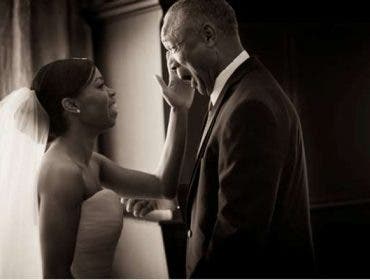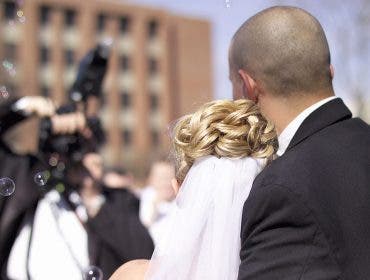Weddings are joyous occasions that often bring together large numbers of family members and friends, and photo opportunities abound. Ideally, you’ll be creating a visual family heirloom so that the wedding day will be remembered fondly for years to come. It’s a tall order—you’re capturing a couples’ special day, and you only get one chance to do it. So here are some do’s and don’ts on getting started in wedding photography and videography.
DO
– When you’re initially breaking into the business, consider becoming an assistant or apprentice to a well-established wedding photographer. He/she often needs extra help, and you’ll have the opportunity to learn this craft first-hand.
– Learn how to expose a bridal gown correctly. To keep the gown white, you will probably need to overexpose just a little over the camera’s recommended exposure, but not so much that the gown becomes a mass of white with no detail. Check the exposure after the first shot, and adjust it accordingly. A very slight amount of underexposure can be corrected in post-production, but at the same time, you don’t want to lose detail in the groom’s dark suit. Many cameras have a highlight warning so that overexposed areas flash at you once the image is taken, allowing you to shoot it again.
– When you begin getting hired to photograph weddings, always get a second shooter or an assistant. It’s always a good idea to have backup on a big job like a wedding. And if the couple wants to hire a videographer, it’s very important that two different people shoot still photography and video.

– Meet with the couple in advance to determine a “shoot list.” It’s important to know what they want you to photograph. Generally, they will want you to capture events like bride and groom’s first kiss, the bouquet toss, the first dance, and carving of the wedding cake at the reception. Spend some time to get to know the couple in advance of the big day. It’s important that you learn about their wishes and what’s important to them.
– Draw up a contract or another written agreement that both you and the couple agree upon, so that nothing is in question (such as your prices or hours of shooting).Does the couple want prints, digital images or an entire wedding album?
– If possible, visit the church and reception venue in advance to plan camera angles and potential photos. This will also help you decide what equipment you’ll need to bring. You may find, for example, that you can get a great view of the ceremony from the choir loft, but you’ll need a long lens in order to get a good-sized image of the subjects.

DON’T
– Don’t take on the responsibility of shooting a wedding until you feel confident about doing the job. It’s important to be realistic about your abilities and experience before committing to shooting or doing video of a wedding — especially if you’re being paid to do so.
– Don’t assume that you can use flash everywhere. Find out in advance what restrictions that the wedding venue may have. Very often, churches don’t allow flash during the ceremony because it’s very disruptive. Be prepared to shoot at a higher ISO setting if this is the case.
– Avoid shooting only posed photos of the bride and groom and their attendants. Keep in mind that wedding photography is part photojournalism, part posed portraits. Sometimes the strongest images are the ones that weren’t pre-planned. Look for opportunities like the emotion on a proud father’s face as he walks his daughter down the aisle, or a spontaneous kiss between bride and groom.

– Don’t overlook small details like the bridal bouquet, the couple’s rings, the lace details of the bridal gown, or the groom’s boutonniere.These details will help contribute to the unique quality of this particular wedding—and along with the more traditional photos—can be an important part of the wedding album.
– Don’t rely on just one camera. You must have a backup in case your primary camera breaks down. It’s at times when you have only one camera that problems tend to occur.Also, a second photographer and/or videographer will undoubtedly capture moments that you’ve missed, and vice versa.
For those who enjoy shooting special events, wedding photography can be one of the most lucrative photographic specialties. Because you only get one chance to capture a bride and groom’s special day, be prepared!
